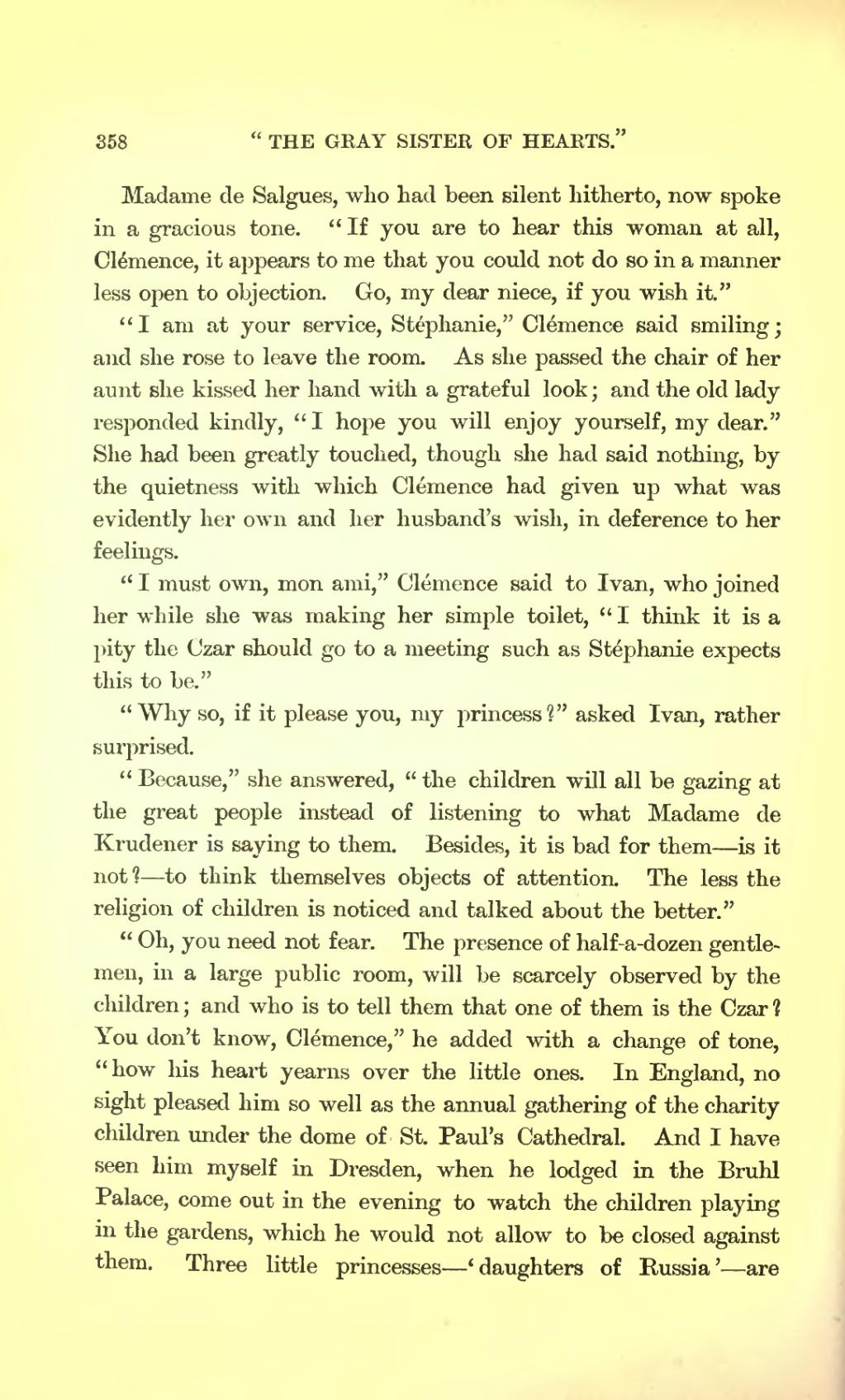Madame de Salgues, who had been silent hitherto, now spoke in a gracious tone. "If you are to hear this woman at all, Clémence, it appears to me that you could not do so in a manner less open to objection. Go, my dear niece, if you wish it."
"I am at your service, Stéphanie," Clémence said smiling; and she rose to leave the room. As she passed the chair of her aunt she kissed her hand with a grateful look; and the old lady responded kindly, "I hope you will enjoy yourself, my dear." She had been greatly touched, though she had said nothing, by the quietness with which Clémence had given up what was evidently her own and her husband's wish, in deference to her feelings.
"I must own, mon ami," Clémence said to Ivan, who joined her while she was making her simple toilet, "I think it is a pity the Czar should go to a meeting such as Stéphanie expects this to be."
"Why so, if it please you, my princess?" asked Ivan, rather surprised.
"Because," she answered, "the children will all be gazing at the great people instead of listening to what Madame de Krudener is saying to them. Besides, it is bad for them—is it not?—to think themselves objects of attention. The less the religion of children is noticed and talked about the better."
"Oh, you need not fear. The presence of half-a-dozen gentlemen, in a large public room, will be scarcely observed by the children; and who is to tell them that one of them is the Czar? You don't know, Clémence," he added with a change of tone, "how his heart yearns over the little ones. In England, no sight pleased him so well as the annual gathering of the charity children under the dome of St. Paul's Cathedral. And I have seen him myself in Dresden, when he lodged in the Bruhl Palace, come out in the evening to watch the children playing in the gardens, which he would not allow to be closed against them. Three little princesses—'daughters of Russia'—are
